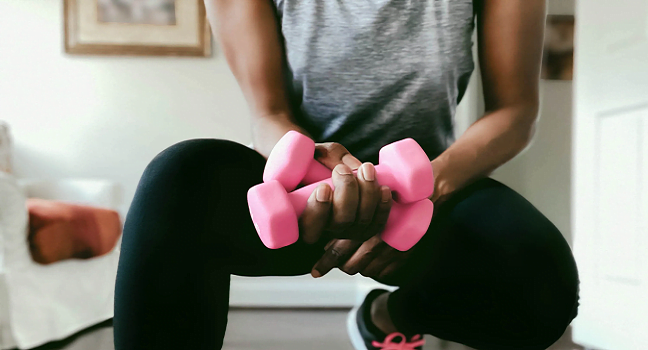The power of exercise is often underestimated in everyday life, especially for those recovering from addiction. When done correctly with other forms of treatment, it’s great for creating a stable routine, filling your spare time or boredom time, giving yourself self-esteem that is often a cause of relapse and depression, and managing mental health.
1) Healthy Body
Physical improvements from daily movement can be that it helps maintain a healthy weight and strengthen your bones. Weight management can be really difficult for those dealing with substance abuse, especially those who quit using nicotine and experience a higher appetite.
2) Reduce the Risk of Disease
According to the CDC, getting more than 150 minutes of exercise per week can reduce the likelihood of cardiovascular disease, diabetes, some types of cancers, and other types of chronic illness.
3) Brain Health
Another physical improvement is actually for your brain. It can create a larger amount of nerve connections to the brain, which in turn helps the brain’s healing process to help recover from those lost from frequent substance abuse.
4) Endorphins
When you give your body physical exercise, it releases what are known as endorphins, which interact with your brain to decrease your perception of pain, sort of like morphine. It can lead to positive feelings of euphoria and optimism, which is wonderful for recovery.
Good mental health habits are imperative for those struggling with depression or anxiety, as those are frequently linked to substance abuse. Not only are endorphins excellent, but good judgment skills, more energy, and sharper thinking are also perks of daily movement.
5) Preventing Drug Use
Now that we know it’s good for our physical and mental health let us take a deeper look at other areas. Working out also curbs cravings. Specifically cannabis users, cocaine, opioids, and amphetamine users.
Exercise moves blood quicker through your heart. It increases oxygen and nutrients in your body. This gives you more energy throughout the day because of the increase in nutrients to your muscles to do usual daily tasks making it easier to resist the urge of drug use. Find more information on how experiences like exercise can help with recovery here.
6) Connecting
Connection is important during the recovery process. Try to sign up for classes, bring a friend or start with a trainer to bring in those benefits with a friend. Going by yourself can be tricky at first.
One of the perks of working out is the structure it can give you. To be there at a certain time every day is something to form the rest of your day around and also something you will eventually start to look forward to!
7) Filling Free Time
Most times, those who are in recovery find they have more time to fill. Whereas they used to hang out with certain crowds, they no longer see wasted time finding or doing said substances.
Poor choices are easily made when we have too much downtime and don’t know what to do with ourselves. Exercise can be a great way to fill an hour or two each day. It fills your head with positive thoughts, goals, and endorphins. Without thinking, you know each day. You have a certain time allocated to this new process.
8) Reduce Stress
Stress is one of the leading causes of relapse. Working out can do the opposite in relieving stress brought on by daily life. You may hear people call the gym their therapy session, and that’s because it’s truly so soothing.
While an actual therapist may be needed, exercise can be the cherry on top. Both low and high-intensity workouts have been proven to lower stress levels. So you benefit greatly if you walk for 30 minutes a day or go to a high-intensity workout class.
9) Regulate Hormones
Exercise helps your body regulate its stress hormone with adrenaline, also known as the flight or fight response. It is very important in your body’s overall health while increasing your heart rate releases serotonin, which is also an anti-stress hormone.
Dopamine is another chemical released during your workouts. This one will help regulate your mood. Mood swings are common in those in recovery, and as little as 30 minutes a day can help to balance these outbursts.
Conclusion:
We all want to feel good in our own skin. Exercise is the best way to help achieve that. Taking care of your body is so important. The food you put into it and the way you move or don’t move affects your life more than you realize. Once you start seeing the lasting impact it has on you, you won’t want to stop! Find what works for you based on your time and what you enjoy to help aid your recovery journey.


